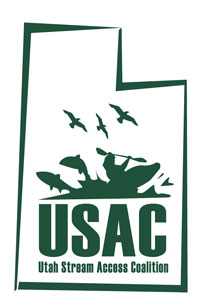
Public Waters Case
“On August 31st, our attorneys filed a supplemental brief in our “Public Waters” case, as requested by the Fourth Judicial District Court of Utah. As a reminder, on May 21, 2012, the Fourth District Court issued a partial ruling on this case that found:
- under Article XVII of the Utah Constitution, the public owns and has always owned the waters flowing in or impounded on Utah’s rivers and streams;
- with ownership comes a constitutional right to use these public waters in place; and
- recreational use is a legitimate public use of these public waters.
Although the Court stopped short of finding H.B.141 unconstitutional, it requested additional briefing from both sides on whether H.B.141’s regulation of the public’s constitutional rights correctly follows, or runs afoul of, the Public Trust Doctrine. It’s complicated, but basically this doctrine mandates that if a natural resource belongs to the public, the State must hold it for the benefit of all the people or for some greater good, and not for private or special interests.
Whether you are allergic to ‘legalese’ or not, USAC’s brief on the Public Trust Doctrine makes for a very good read. Here’s where you can download it and see for yourself: Supplemental Brief. We encourage you to give it a read and talk about it with your friends, relatives, neighbors, and elected officials.
Although it’s hard to predict when we might expect a final ruling from the Court, we believe that the judge, the Honorable Derek Pullan, may well require another round of oral arguments, where he can ask critical questions of both sides, before issuing that final ruling. We’ll keep you informed of our progress.
Congratulations to USAC (see utahstreamaccess.org) for shouldering the load on an important issue that will have lasting effect on anglers throughout the country. They very well may earn the most important grassroots victory for angling access in the country. Tune into the next print issue of Angling Trade for more detailed discussion on Utah, as well as an evolving access case in Virginia.



